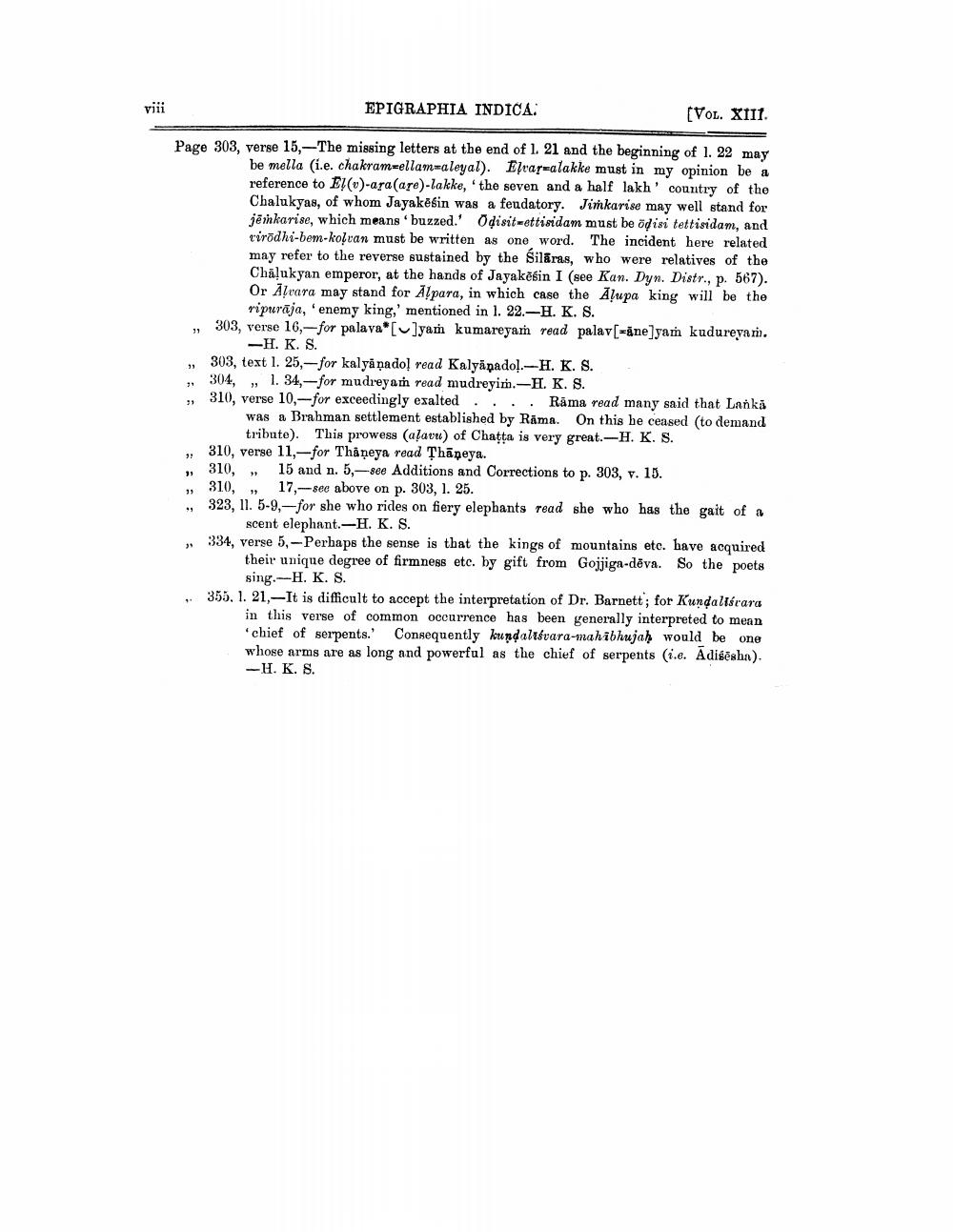________________
viii
EPIGRAPHIA INDICA.
[VOL. XIII.
Page 303, verse 15,-The missing letters at the end of 1. 21 and the beginning of 1. 22 may be mella (i.e. chakram-ellam-aleyal). Elvar-alakke must in my opinion be a reference to El(v)-ara (are)-lakke, the seven and a half lakh country of the Chalukyas, of whom Jayakēsin was a feudatory. Jimkarise may well stand for jemkarise, which means 'buzzed.' Odisit-ettisidam must be ödisi tettisidam, and rirodhi-bem-kolvan must be written as one word. The incident here related may refer to the reverse sustained by the Silaras, who were relatives of the Chalukyan emperor, at the hands of Jayakěsin I (see Kan. Dyn. Distr., p. 567). Or Alvara may stand for Alpara, in which case the Alupa king will be the ripuraja, enemy king,' mentioned in 1. 22.-H. K. S.
303, verse 16,-for palava []yam kumareyam read palav[-ane]yam kudureyam.
-H. K. S.
31
303, text 1. 25,-for kalyanadol read Kalyanadol.-H. K. S.
304, 1. 34,-for mudrey am read mudreyim.-H. K. S.
21
35
,, 310, verse 10,-for exceedingly exalted.... Rama read many said that Lanka
was a Brahman settlement established by Rama. On this he ceased (to demand tribute). This prowess (alavu) of Chatta is very great.-H. K. S.
310, verse 11,-for Thaneya read Thaneya.
310, 310,
15 and n. 5,-see Additions and Corrections to p. 303, v. 15. 17,-see above on p. 303, 1. 25.
33
323, 11. 5-9, for she who rides on fiery elephants read she who has the gait of a
scent elephant.-H. K. S.
334, verse 5,-Perhaps the sense is that the kings of mountains etc. have acquired their unique degree of firmness etc. by gift from Gojjiga-deva. So the poets sing.-H. K. S.
17
31
23
در
27
355. 1. 21,-It is difficult to accept the interpretation of Dr. Barnett; for Kundalisrara in this verse of common occurrence has been generally interpreted to mean 'chief of serpents. Consequently kundalisvara-mahibhujah would be one whose arms are as long and powerful as the chief of serpents (i.e. Adisesha).
-H. K. S.




